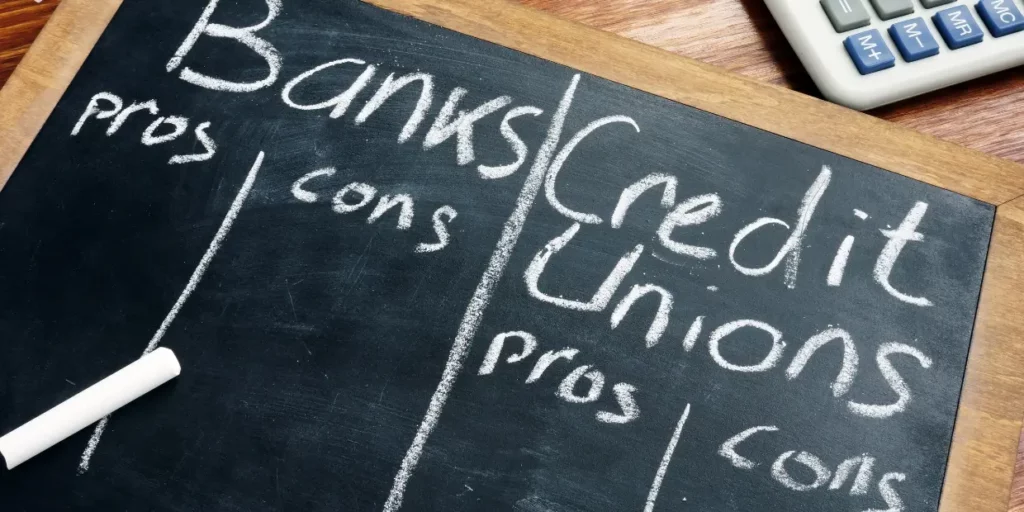Why Choose A Credit Union?

Why Choose A Credit Union?
Q: I’m thinking of switching my checking account to a credit union. How is it different than using a big bank?
I love my credit union, but I also have a checking account at a bank. Should I move my checking account to a credit union?
A: You’re not alone. Many Americans are dissatisfied with their banks, and are looking to make a switch.
As a credit union member, you can expect to have a more rewarding experience. Because credit unions are member-owned and not-for-profit, they are more attuned to the needs of their members.
While banks and credit unions offer nearly identical services and account choices, there are some differences.
Let’s take a look at how having a checking account in a credit union differs from a bank.
Account Fees
To the unsuspecting consumer, big banks may not feel like money-hungry monsters. But while they’re happy to hold onto your money, once your account is up and running, expect to get hit with steep maintenance fees. The average bank charges consumers close to $150 each year for having an open checking account.
On the flip side, many large credit unions offer free checking or make it easy to avoid the fees, so you can set up your account and keep it running without it costing a dime.
Overdraft fees
Sometimes, you miscalculate the funds in your account and overspend. If you make this mistake on a checking account at a bank, get ready to cough up those overdraft fees!
These fees usually top $30, and some banks will make consumers pay the penalty for each transaction they make while their account is overdrawn.
Most credit unions will be more willing to forgive the occasional error. While some credit unions do charge an overdraft fee, on average, these fees are a lot lower than what banks demand.
Fewer strings attached
Most big banks won’t allow you to open a checking account unless you have a minimum balance of several hundred dollars. In contrast, 76% of credit unions have no minimum balance requirement at all.
Credit unions are government-regulated
Both credit unions and banks are federally governed. A credit union that’s federally insured, like a bank with federal insurance, covers your accounts up to $250,000.
However, credit unions face more government restrictions on their investments and loans than banks do. This means your credit union has to be super-careful with how it invests your money.
Superior service
When you’re banking with family, you don’t have to worry about overworked tellers, court managers, or representatives who are indifferent to your individual needs.
Ready to become a credit union member? Join County Federal!
Already a member, but know someone who could benefit from County Federal Membership?
Content Source: CUContent






